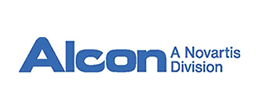Lifetime Achievement Award 2019
Professor Dave Edgar has been named the recipient of the AOP Awards Lifetime Achievement Award 2019

Winner: Professor Dave Edgar
I wouldn’t say that I selected optometry as a career, more that it selected me, and I simply fell into it,” said emeritus professor and the recipient of the 2019 AOP Awards Lifetime Achievement Award, Professor Dave Edgar.
Professor Edgar’s career in optometry began in 1971 when, as a then 21-year-old, he enrolled onto an optometry degree at City, University of London.
At that point, optometry could have been a temporary stop-gap for Professor Edgar, who had been planning to fly off into the sunset bound for teacher training college in Australia.
With a father who was an optometrist and a sister who was a dispensing optician, it was Professor Edgar’s sister who encouraged him to apply for optometry (or ophthalmic optics as it was then called). “To my surprise I was accepted onto the course and as I had a few months before I was due to fly to Australia, I decided to try it to see if I liked it,” he told OT.
Professor Edgar never did board that flight because he quickly caught the optometry bug. “Like many decisions in my life, embarking on a career in optometry was all down to luck,” he said.
After starting his degree, Professor Edgar realised that optometry was a career that he was very well suited to.
I realised that it gave me an opportunity to do something that allowed me to help the public, while I also really enjoyed the teaching I received
The path to optometry
As an undergraduate, City’s optometry school was then based close to London’s Moorfields Eye Hospital and for his pre-registration year, Professor Edgar made the short walk across the street for a hospital placement there.
“It was great fun,” he said. “We got to see all sorts of pathology and difficult refractions,” he added.
On registration, Professor Edgar shared that, like many of his colleagues, he continued to do sessional work at the hospital, augmenting his working week locuming in different High Street settings in and around London. Then his next stroke of career luck struck…
“Very soon after registration I learned that City was looking for someone to help out temporarily in its second-year clinical teaching lab. By luck, the lessons coincided with the only availability I had in my working week and I took up the opportunity,” he explained.
Professor Edgar enjoyed the teaching role and was keen to continue.
I found that I loved the teaching and those four hours at City soon became the highlight of my working week
Therefore, when a lecturer position became available, he applied and was successfully appointed. “I was delighted because I certainly wasn’t overly qualified,” Professor Edgar smiled modestly.
That was in 1977 and Professor Edgar has remained at the institution in various guises ever since, progressing to senior lecturer, director of clinics and later head of department.
Research rewards
When discussing his research achievements, the academic professes: “One of my many weaknesses is that I have got what I describe as a butterfly mind, I am interested in almost everything and I flit from one thing to another.”
However, this has not halted Professor Edgar in his achievements. He has authored two books, published 78 papers in journals and presented many more conference addresses.
He summarises his main current research interest as “investigating the role of the community optometrist, in particular enhanced services, the referral process and improving the quality of referrals.”
“My chief aim is to improve the lot of the individual optometrist and the optometric profession, while at the same time improving the quality of care we provide to our patients,” he emphasised. It is this aim that has underpinned much of Professor Edgar’s research.
Standout studies that Professor Edgar has worked on in academia include the Enhanced Scheme Evaluation Project (ESEP), which he began as part of a team led by Professor John Lawrenson and Professor Robert Harper in 2012. The project, which is still ongoing, evaluates community-based eye care models, and Professor Edgar highlighted that enhanced eye care services schemes are “safe, clinically effective, highly-rated by all stakeholders, and are potentially cost effective.”
Professor Edgar is also proud of the outcomes that were found in the Standardised Patient research study, in which three trained actors visited 100 practices in England for an eye examination to identify which tests were carried out in each one.
Working with optometrists Professor Bruce Evans and Dr Rakhee Shah, the trio concluded that there is no such thing as a standard eye test. This is important, Professor Edgar said, emphasising: “There is very little research that investigates what actually occurs during a typical GOS sight test and it is becoming increasingly common for healthcare practitioners to become accused of malpractice.”
“Our findings have been very influential over the years in medico-legal cases involving optometrists,” he added.
The research is now 10 years old and Professor Edgar is particularly keen to update the study in the near future if funding can be secured.
More recently, Professor Edgar was involved in the PrOVIDe study, research led by the College of Optometrists and funded by the National Institute for Health Research. The findings of this study, Professor Edgar emphasises, were valuable because they found that many of the most important tests that are performed during an eye examination were possible on more than 80% of people with dementia. It also found that many people with dementia who could be classified as visually impaired would not be so if they had an up-to-date spectacle prescription.
Highlights a plenty
Professor Edgar admitted that he finds it hard to choose just one highlight from his career that has spanned 40-plus years. “Every part of my career has had its hugely positive aspects,” he told OT.
When encouraged to choose, Professor Edgar says that he “loved” his six years as head of department at City. “I was fortunate to have a brilliant team around me who were all great to work with,” he said.
Professor Edgar’s time heading up the department was made ever-more enjoyable as it coincided with what he described as an “exciting time for academic optometry.”
He oversaw City’s teaching assessment by the Quality Assurance Agency, as well as the 2001 Research Assessment Exercise (now known as the Research Excellence Framework), which assessed the quality of research in UK universities. City performed very well in both assessments, as did the other UK optometry departments. He also played a pivotal role in the optometry school’s move to Northampton Square and Bath Street.
“To sum up those six years, I can say, without much fear of contradiction, that the workload for the heads of optometry departments in the UK was, and I’m sure still is, pretty much infinite.
I really enjoyed the challenges of the post and the collaboration with my colleagues in the optometry department and across the university
On being selected as the AOP Awards 2019 Lifetime Achievement Award recipient, Professor Edgar concluded: “It is a fantastic honour, I was amazed to be chosen.”
The AOP Awards 2019 was headline sponsored by CooperVision.

